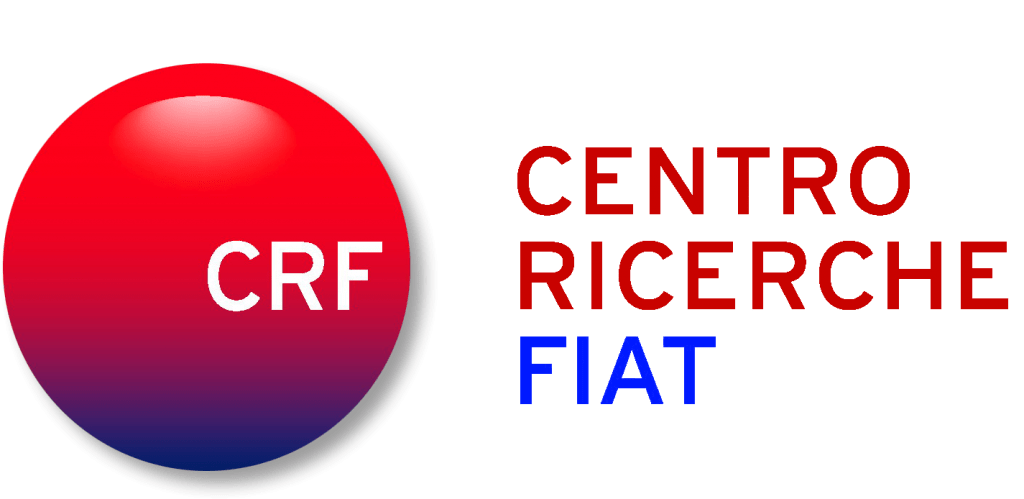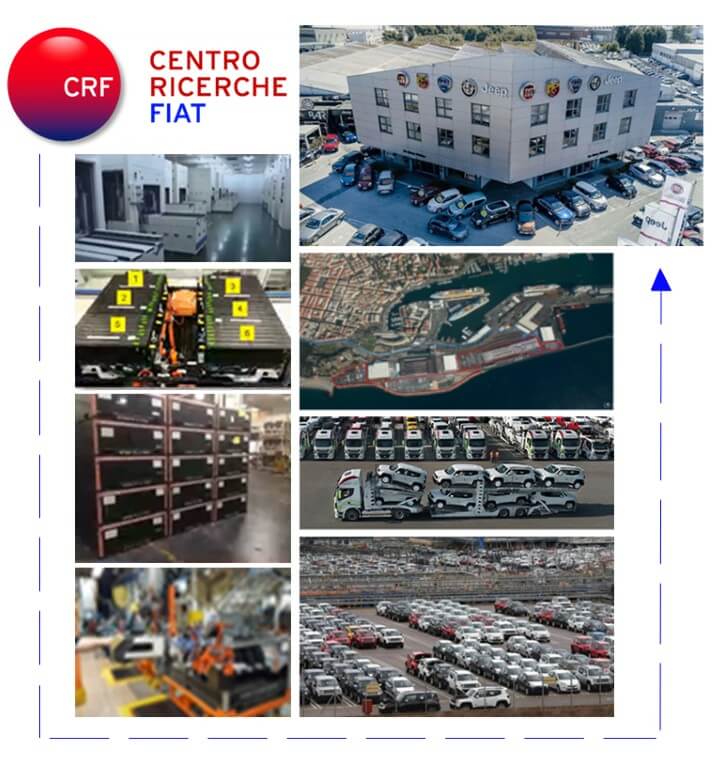CYRENE Pilot 02 - The Automotive Manufacturer Trial Case
The Pilot Provider

CRF is one of the main private research centers in Italy, owned today by Stellantis Group. It was founded in 1978 with the following three main objectives:
- to develop innovative power units, vehicle systems, materials, methods, and processes to improve the competitiveness of FCA products
- to represent FCA as part of European and national collaborative research, taking part in pre-competitive research projects, and promoting the development of a network of contacts and partnerships on an international scale
- to support FCA in enhancing the value of its intangible capital
After merging with PSA, CRF is continuing its activities in the new Group Stellantis with the goal to increase flexibility, quality, productivity, safety and ergonomics, energy, and security of the manufacturing and logistic processes.
Electrification will play an increasingly important role in the transformation of mobility industries (e.g. automotive). Batteries are sensitive components, and they must be monitored during their transportation to avoid unexpected events such as vibration and temperature shocks. Therefore, IoT devices, installed on the containers, offer possibilities to locate and track batteries from production plant to assembly plant and to monitor transportation conditions. Several business partners are involved in this Supply Chain Service (e.g., Supply Chain Management and Vehicle Assembly Plant).
The collection and transmission of data from origin to destination generate traffic of information from several devices within a cyber network that must be monitored. CRF entered in CYRENE considering the following questions:
Q1. Which tools (hardware and software) are necessary to guarantee the security of the infrastructure (devices, network) utilised during the inbound logistic?
Q2 Which solutions are necessary against threats and attacks? Which assets (components and methodologies) must be used to avoid the manipulation and interception of data and which one to avoid the interruption of services and cancellation or delay of data?
CYRENE answers these questions by providing innovative assets (components and methodologies) to evaluate and ensure the security in the supply chain, where interception, manipulation, and disruption of data can cause delays and production stops with additional costs. Furthermore, Cyrene developed a Conformity Assessment Process (CAP) that demonstrates cybersecurity in the whole business process.
Why Use CYRENE?
The Use Case Scenario
Within the Supply Chain, CRF identified an Inbound Logistic service and defined the use case as ‘Monitoring of components during transportation”.
During Inbound Logistics, IoT devices are used to track, trace, and monitor the localization and quality of components transported on containers from the supplier plant to the vehicle production plant. The devices are installed on the containers, and they include some sensors allowing to detect of the position and other relevant parameters (i.e., temperature, vibrations). Thanks to the near-real-time data about quality conditions and localization of the material during the shipment, the Supply Chain Management can update information about the ETA (Estimated Time of Arrival) and quality of components and transmit them to the final assembly plant, that so it is able to schedule and/or reschedule if needed, the production.
KEY FACTS
Project Coordinator: Sofoklis Efremidis
Institution: Maggioli SPA
Email: info{at}cyrene.eu
Start: 1-10-2020
Duration: 36 months
Participating organisations: 14
Number of countries: 10
FUNDING
 This project has received funding from the European Union’s Horizon 2020 Research and Innovation program under grant agreement No 952690. The website reflects only the view of the author(s) and the Commission is not responsible for any use that may be made of the information it contains.
This project has received funding from the European Union’s Horizon 2020 Research and Innovation program under grant agreement No 952690. The website reflects only the view of the author(s) and the Commission is not responsible for any use that may be made of the information it contains.

